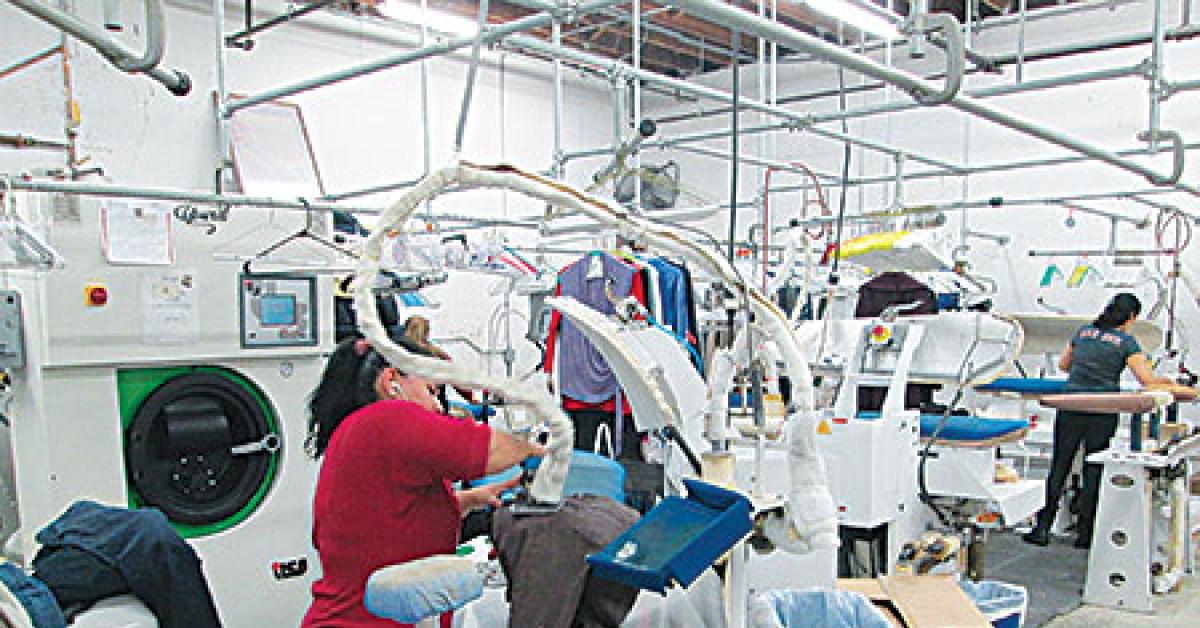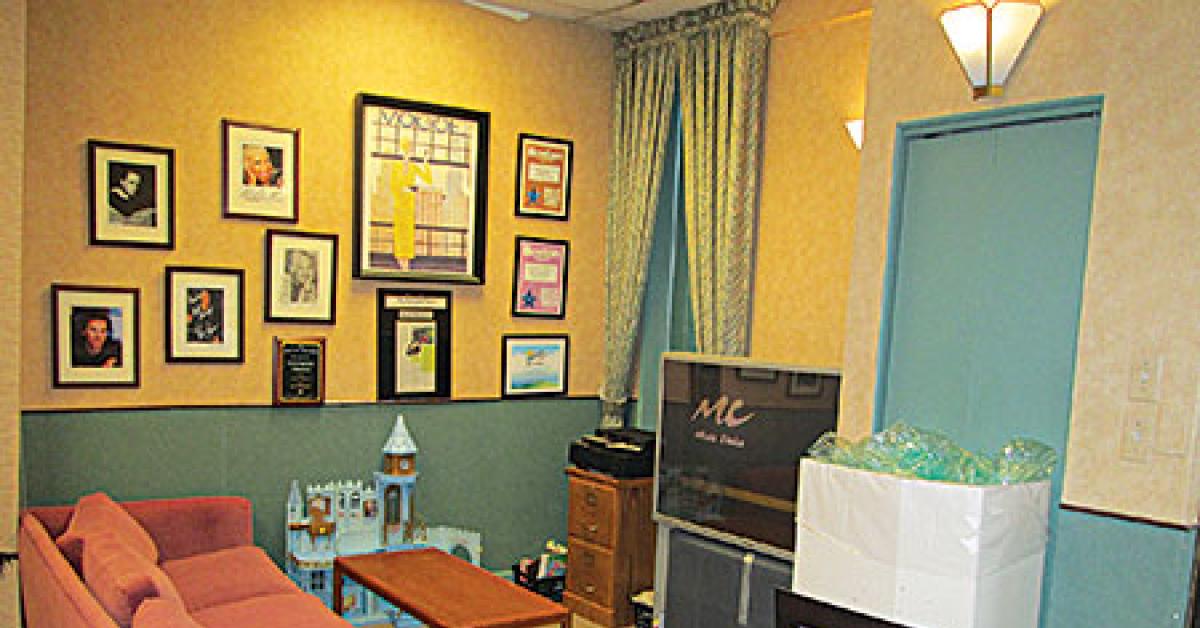MEDFORD, Mass. — When one meets a dry cleaner, one asks what niche business he or she does besides retail cleaning. Typically, the answer is alterations, or wholesale, or commercial, or insurance restoration, or wedding gowns. But Farshad Sayan, owner of Clevergreen Cleaners, answers, “Movies.”
Huh? Sayan has a friend in the movie business in Los Angeles who spends her time reviewing about-to-be-released films. With the proliferation of movies being made in the Boston area—The Way Way Back, The Judge and American Hustle are a few recent examples—Sayan reasoned that the industry needs an on-site dry cleaner to keep their costumes clean and well-maintained.
He prompted his Hollywood friend to suggest using Clevergreen for their cleaning needs. One costume supervisor tried them, then another, then another. Sayan now has a movie trade. In fact, a recent film netted Clevergreen $35,000 in revenue. “This movie trade is irregular, but I can figure that movie volume will be 3-5% of total volume,” he says, “and it’s profitable.”
PLANT PROFILE
The Clevergreen plant is clean, well-lit and uncrowded. Workers push out loads at a deliberate pace. All cleaning is done with a Columbia Ipura machine using “clean earth vapor.” Pressing is done on three Unipress presses and two specialty presses. Workers turn shirts out on a double-buck Unipress machine. “Sensitive” blouses, fancy new shirts, and shirts with breakable buttons are processed on a customized Sam Susie.
These days, about 33-35% of outfits are wet-cleaned, Sayan says. The cleaner claims it has learned to get almost all stains out through wet cleaning.
Most of the volume is over-the-counter retail, but Clevergreen maintains some home delivery accounts for customers who live in multi-family dwellings, which are typically condo complexes. By excluding single-family homes, there’s no problem dropping off or picking up orders. Plus, there’s a good chance of winning more business, according to Sayan. Finally, the company does periodic work for hotel chains, cleaning drapes. Clevergreen does no wholesale business.
Omar Arriaza, Clevergreen’s full-time delivery person, integrates these customers into his drop-store servicing route. Unfortunately, being in Boston means one risks getting a lot of parking tickets. Even if the van is stopping for only a few minutes, the driver could return to see a ticket on his windshield. Sayan accepts this as the cost of doing business in Boston, saying, “You can’t get upset or it will drive you crazy.”
As far as controlling costs, Sayan admits that his occupancy costs are way over the 10% prescribed amount. “Having good retail locations in Boston costs (money). The Beacon Hill store’s rent is $6,500 a month. At $500,000 sales with a $70,000 occupancy cost, that’s 14%. Unfortunately, rent is about to go up to $7,500, but hopefully volume will rise to $600,000 to $650,000.”
It helps that Sayan owns the plant building, and fixes his costs there.
Besides rent, Sayan keeps his production labor at 30-35% of volume, not including his take. He saves money on advertising/marketing. His only effort is to maintain an Internet presence, with one person tasked with handling Facebook, Twitter, the website, and blogging for the company. Sayan doesn’t think this online presence gets him much new business, but one can’t afford not to do it. The advertising budget includes no print advertising.
The bottom line is helped by the company’s pricing. At $2.75 a shirt and $8 for a pair of pants, Clevergreen’s pricing is at the high end. So overall, his costs are reasonable and his margins solid, and a profit is constantly made.
WHAT’S IN THE NAME?
How did Sayan choose the company’s name? He first thought of Evergreen, but that was taken. The Hollywood friend suggested Clevergreen, and Sayan liked the connotations it carried.
At 59, and with two young children at home, Sayan has no intention of retiring anytime soon. The fitness buff plays racquetball regularly and works out in a gym six days a week.
He hopes the local movie business will continue, and that means that tax incentives luring such productions to Boston need to be ongoing. Whenever he goes on to a movie set, he sees the proliferation of small companies that do business with the production: from food purveyors to tradesmen to advisers. “These tax incentives are good for local business, and thus good for the state,” Sayan says. “I hope they continue.”
While looking at the “big picture,” Sayan offers this warning: “The young people coming up today are different from us, in that they have different aspirations. They no longer want the American Dream—the house in the suburbs, one or two cars, and all that this entails. They have different motivations. Since this new breed of people will be our drycleaning customers as well as employees in the future, we have to figure out new ways to deal with them. It’s a different mindset, and one must be ready for change.”
If you missed Part 1, you can read it HERE
Have a question or comment? E-mail our editor Dave Davis at [email protected].



